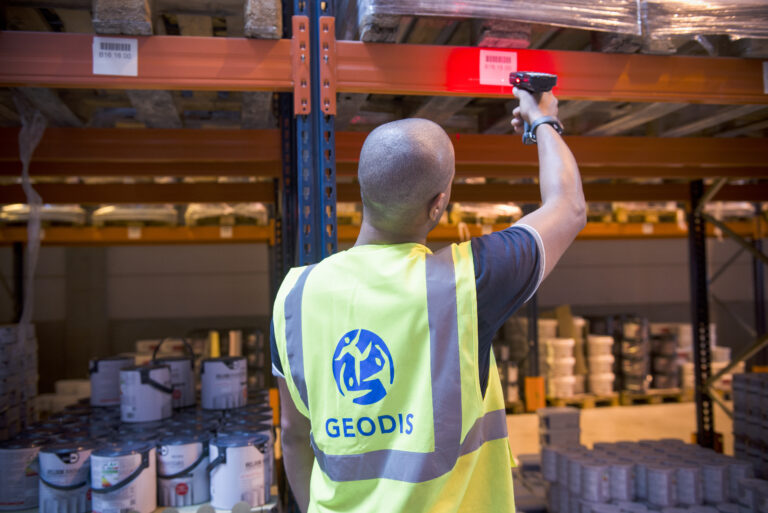To help its customers reduce their environmental footprints, GEODIS has developed an eco-design approach that integrates the impacts of its logistics services.
Implemented by GEODIS for its Contract Logistics line of business, the eco-design methodology aims to identify the environmental impact of a logistics service at all stages of its life-cycle and propose areas for improvement. The company provides its customers with a detailed carbon assessment as well as effective reductions in – or even avoidance of – CO2 emissions. These options help to minimise energy consumption, improve waste management and optimise the use of buildings, equipment and transport flows. For one of its clients, GEODIS developed an approach to reduce CO2 emissions by 51% – i.e. approximately 2,250 tonnes of CO2 less over five years, using a system that combines the use of photovoltaic panels and LED lamps, recycling process, optimisation of space and equipment, and a BREEAM-certified building.
“Our customers expect a strong commitment from their logistics partners,” commented Laurent Parat, President & CEO of Western Europe, Middle East & Africa (WEMEA) & EVP, Contract Logistics of GEODIS. “ISO 14001-certified for many years, we wanted to take our environmental approach even further and move towards a responsible supply chain. Our approach is based on more transparent communication. It provides a guarantee to our customers that behind an offer and a price, environmental aspects have been taken into account and are part of the quality of service that we are committed to delivering,”
This unique approach (only 21% of companies use the eco-approach to develop products and services according to ADEME), addresses the entire life-cycle of the logistics service. This is in line with the definition of eco-design, which ‘consists of integrating the environment from the design stage of a product or service, and during all stages of its life-cycle’ (AFNOR, 2004).
GEODIS’s approach is comprehensive. It incorporates CO2 emissions related to the total service life-cycle. From the initial sales and tender stage, it takes into account all the assets necessary through to the completion of the project, including the final site closure phase.
The GEODIS engineers in charge of designing logistics offers are all trained in the eco-design approach to anticipate CO2 emissions before a project even begins. GEODIS customers have access to a comparison between a standard logistics offer and the ‘eco-designed’ proposal, which they can use in their own carbon assessment.
The methodology – based on GEODIS’s expertise and data in sustainable development – has been audited by an external auditing firm and validated by AFAQ.
“With the development of e-commerce, more and more customers are calling on us to find solutions to decarbonise and reduce waste in the supply chain,” concludes Parat. “We wanted to provide our clients with a very precise assessment of the CO2 emissions generated, but above all to propose sustainable solutions to limit them as much as possible.”







